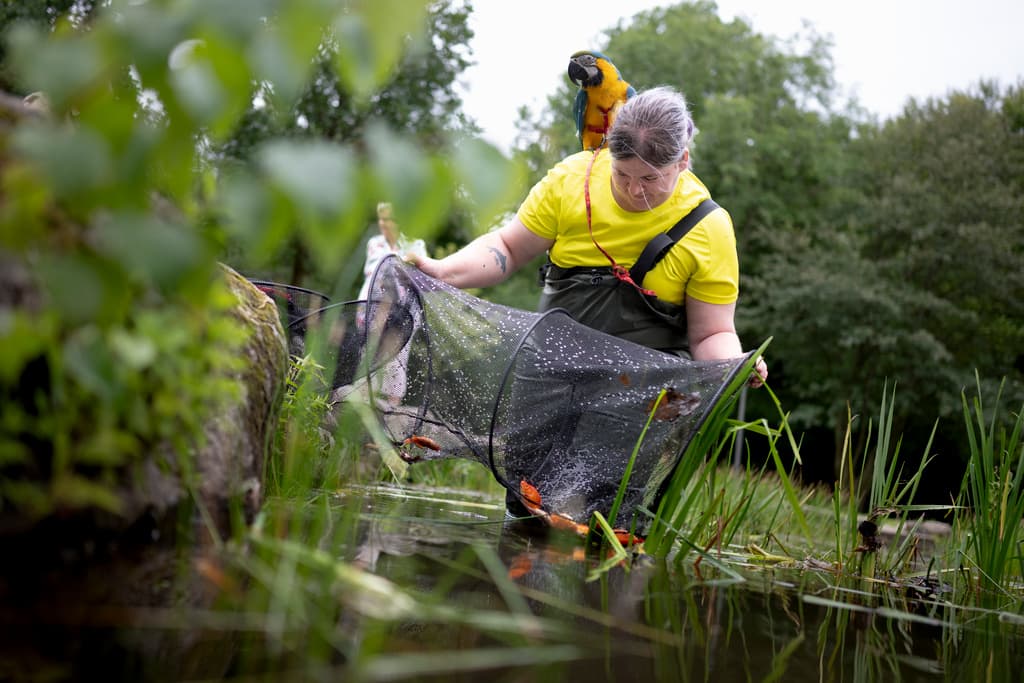Suddenly, there were a lot of goldfish in a shallow, oxygen-poor pond in Gothenburg. Marine biologist Cheyenne van Keeken has picked up more than 400 and managed to rescue most of them.
Animal cruelty, she says about releasing fish in such a place.
But it's not uncommon for fish to be placed illegally.
Cheyenne van Keeken read on Facebook about the goldfish in a pond in Kiellers park on Hisingen. She called Gothenburg City and was allowed to pick up as many as she wanted.
Some goldfish were injured, likely due to oxygen deficiency, and had to be put down. But the others have been relocated, via van Keeken. When it became known that she had goldfish to give away, people from all over Västsverige contacted her.
They are private individuals who live a bit in the countryside and have their own garden ponds, says Cheyenne van Keeken.
If you have your own plot with a pond that is not connected to other waterways, it's okay to release, for example, goldfish. But in other cases, a permit from the county administrative board is required to release fish.
Many probably don't know what rules apply. Releasing fish without a permit is more common than you think, says Fredrik Larson, county fisheries consultant in Västra Götaland.
Two categories
Just this summer, the county administrative board in Västra Götaland has received a handful of tips. There are two types of cases.
One category is sports fishermen who want a new species, for example, rainbow trout, in some lake.
You must contact the county administrative board first. We have control over all waters where we have given permits for fish releases, says Fredrik Larson.
The other variant is that someone places ornamental fish in a pond. Maybe because you're tired of your pets, or because they've become too many.
Illegal fish releases are reported to the police. But many cases, for example in a city park, are of course difficult to investigate.
The risk that the released fish will fare poorly is one of the risks. Even worse is that plants and animals that already exist in the waterway can be harmed.
Ponds that are naturally fish-free are favorable environments for frogs, salamanders, and insects that grow up there, says Larson.
Fish in such a pond can eat up the other animals and also stress them in other ways.
Invasive species
Especially bad is if someone releases an invasive species.
A few years ago, the species pumpkinseed sunfish was found in a pond in Partille, outside Gothenburg. It ended with the pond being drained by the municipality.
In 2015, a whole small lake in Örebro County had to be filled in, after a large amount of black bullhead was found there.






